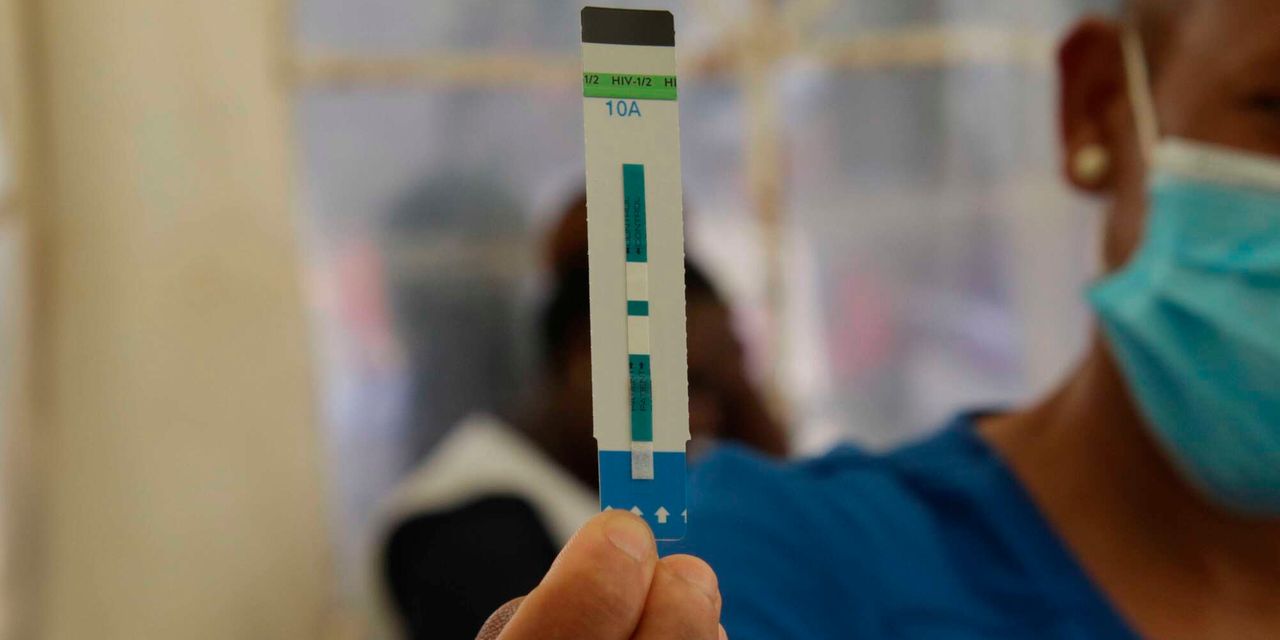News
Why Kenyans Who Tested Negative For HIV Could Be Living With The Virus Unknowingly
This surprising revelation stems from a court case filed before the High Court, which brought to light the Ministry of Health’s approval process for HIV testing kits.

New evidence has come to light suggesting that the negative HIV/Aids test results some people received were incorrect.
This surprising revelation stems from a court case filed before the High Court, which brought to light the Ministry of Health’s approval process for HIV testing kits.
According to the court proceedings, due to the ministry’s endorsement of certain kits as the most effective, there is a chance that three out of every 100 Kenyans who underwent testing were erroneously informed that they are HIV-negative. In reality, they may be living with the virus.
The complainants, Kathambi Ruciami and Guangzhou Wondfo Biotech Company Limited, through lawyer Elias Mutuma, argued that the categorisation of kits done early this year was wrong and puts Kenyans at risk.
In 2019, the World Health Organization (WHO) recommended that countries transition from a two-test algorithm to a three-test algorithm to improve the accuracy of HIV testing.
Kenya had been employing a two-test strategy for the past 15 years. But the primary concern with this approach was it often resulted in conflicting test results.
There is already an ongoing separate court battle between two women and the government regarding the two-test strategy after they received positive results from the kits despite being negative.
WHO had also recommended the use of dual HIV/syphilis rapid diagnosis tests for pregnant women attending ante-natal care. Kenya adopted this strategy for pregnant women in 2018. The health agency also recommended that for a positive HIV diagnosis, the three consecutive tests should maintain a 99 per cent predictive value. This means that out of every 100 individuals tested, 99 will receive accurate results.
Last year, a task force was formed to review and categorise the kits intended for use in the country. To justify why the country needed to change its approach, the task force conducted tests using both the two-test approach and the new three-test method for comparison.
In a review test involving 1,776 individuals (excluding pregnant women) using the old two-test algorithm, there were mixed results of 99.5 per cent, 95.23 per cent, and 98.7 per cent. Regarding dual HIV/syphilis testing, the task force recommended Kenya to continue using the Standard Q test for pregnant women due to its superior clinical sensitivity for syphilis, broader range for storage temperature, and lower cost.
It also recommended that the country should do away with the old system of testing. In February this year, the ministry tasked the National AIDS & STI Control Program (NASCOP) to oversee the rollout and implementation of the transitioning to the use of new categories.
This is where the battles began. The first case against the Ministry of Health was filed by Joseph Omwando who accused the Susan Nakhumicha-led ministry of failing to involve stakeholders and procuring kits that have lower sensitivity. Omwando claimed that the ministry sought to overhaul the testing algorithm under the pretext of following WHO recommendations but failed to strictly follow the required processes. He said that other countries have moved to fourth-generation tests, and that Kenya wants to adopt ‘old’ technology.
In the latest case, Ruciami and Guangzhou claim test results were less accurate as a result of lower rates of specificity and sensitivity. Justice Chacha Mwita heard that there is no chance for a person who has received a negative result to be retested.
They want the court to stop the procurement process and force the ministry to categorise the kits accordance to WHO’s standards.
Kenya Insights allows guest blogging, if you want to be published on Kenya’s most authoritative and accurate blog, have an expose, news TIPS, story angles, human interest stories, drop us an email on [email protected] or via Telegram
-

 Grapevine1 week ago
Grapevine1 week agoAlleged Male Lover Claims His Life Is in Danger, Leaks Screenshots and Private Videos Linking SportPesa CEO Ronald Karauri
-

 Lifestyle2 weeks ago
Lifestyle2 weeks agoThe General’s Fall: From Barracks To Bankruptcy As Illness Ravages Karangi’s Memory And Empire
-

 Grapevine5 days ago
Grapevine5 days agoRussian Man’s Secret Sex Recordings Ignite Fury as Questions Mount Over Consent and Easy Pick-Ups in Nairobi
-

 Investigations3 days ago
Investigations3 days agoMulti-Million Dollar Fraud: Three Kenyans Face US Extradition in Massive Cybercrime Conspiracy
-

 Investigations2 weeks ago
Investigations2 weeks agoEpstein’s Girlfriend Ghislaine Maxwell Frequently Visited Kenya As Files Reveal Local Secret Links With The Underage Sex Trafficking Ring
-

 News2 weeks ago
News2 weeks agoState Agency Exposes Five Top Names Linked To Poor Building Approvals In Nairobi, Recommends Dismissal After City Hall Probe
-

 Economy1 day ago
Economy1 day agoIran Demands Arrest, Prosecution Of Kenya’s Cup of Joe Director Director Over Sh2.6 Billion Tea Fraud
-

 Business1 week ago
Business1 week agoM-Gas Pursues Carbon Credit Billions as Koko Networks Wreckage Exposes Market’s Dark Underbelly
















